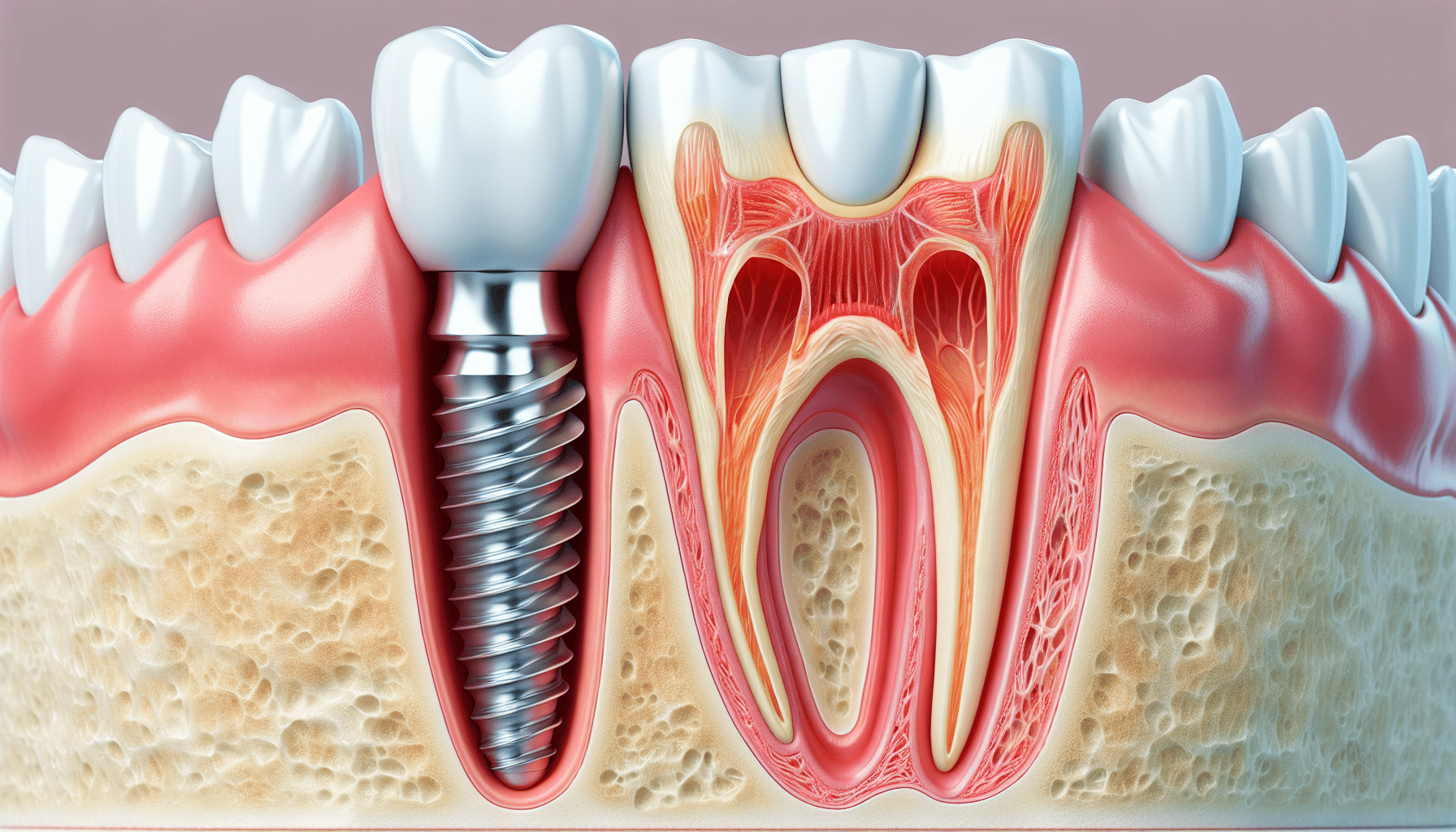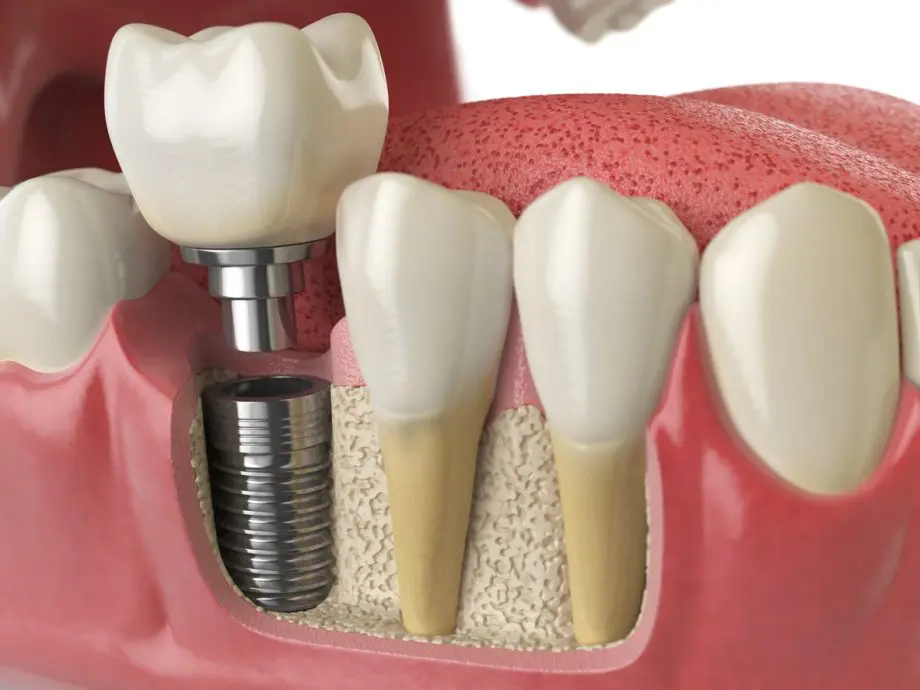Dentists Johnstown OH Full Mouth Dental Implants
Dental implants have emerged as a popular choice for people in search of a long-term answer to tooth loss. One important facet of understanding dental implants entails their effect on adjacent teeth. This is especially necessary for guaranteeing the health and longevity of the whole dental structure.
When a dental implant is placed, it mimics the function of a natural tooth root. By doing so, it helps maintain the integrity of the encompassing bone structure. Natural teeth rely on a balanced, interconnected system for support, and dental implants can contribute positively to that dynamic. The stability supplied by the implant permits for better distribution of chunk forces, which might prevent undue stress on adjacent teeth.
Dentists Granville OH Dental Implant Services: Find the Best in Your Area
In cases the place a tooth is missing, the neighboring teeth could shift into the vacant house. This shifting can lead to misalignment and numerous other problems. By putting a dental implant, the chance of this shifting is reduced, as the implant acts as a placeholder that preserves the natural alignment of surrounding teeth. This preventive effect is essential for long-term oral health and function.
Another essential consideration is bone loss. When a tooth is misplaced, the jawbone within the space can start to deteriorate as a result of an absence of stimulation. Dental implants help prevent this bone loss by offering the required stimulation to the jawbone, very like a natural tooth root would. This preservation of bone not solely supports the implant itself but in addition contributes to the soundness of adjacent teeth.
The kind of fabric used in dental implants, typically titanium, has a unique property of osseointegration, which means it fuses with the bone over time. This integration supplies a sturdy basis for the bogus tooth whereas guaranteeing that the implant doesn’t negatively have an result on surrounding constructions. As the implant integrates, it creates an surroundings that contributes positively to the health of the adjacent teeth.

Regular dental check-ups play an essential role in monitoring the influence of dental implants on adjacent teeth. Professional assessments may help identify any issues which will come up, ensuring prompt remedy and sustaining the health of the entire dental arch. These evaluations may embrace X-rays to verify for bone density and the overall condition of the implant and surrounding teeth.
Dental Center Columbus OH The Best Dental Implant Services
Oral hygiene practices are important for people with dental implants. Proper brushing and flossing habits not only contribute to the longevity of the implant but also be certain that adjacent teeth remain healthy. Food particles and plaque that accumulate around the implant can cause problems, together with peri-implantitis, an inflammatory condition that may affect surrounding teeth and tissues.
The positioning of dental implants can affect the health of adjacent teeth. If an implant is positioned at an angle or not properly aligned, it might lead to elevated strain on neighboring teeth. This misalignment could trigger put on and tear on adjacent enamel, probably leading to cavities or other dental issues. Therefore, the ability and expertise of the dentist performing the implant procedure are paramount in reaching a profitable end result.
In some situations, further procedures may be essential to organize the encompassing area for an implant. Bone grafting or sinus lifts may help create a greater surroundings for the implant. While these procedures are aimed toward enhancing the site for the implant, they also serve to guard the health of adjacent teeth by creating a extra secure foundation.
Dental Care Associate Galena OH The Advantages, Risks, and Insurance for Dental Implants

As dental expertise evolves, advancements in implant strategies result in better outcomes. Improved imaging strategies and computer-aided design permit for extra precise placements that minimize risk to adjacent teeth. With these developments, the probability of issues that would arise from improperly positioned implants diminishes significantly.
Post-operative care additionally plays a important role in guaranteeing that adjacent teeth remain unaffected. Patients should adhere to the dentist's instructions concerning food plan, oral hygiene, and follow-up visits. Neglecting these guidelines may lead to problems that impact not solely the implant but also the neighboring teeth.
Johnstown Dental Johnstown OH Dental Implant Services: Find the Best in Your Area
In conclusion, dental implants, when positioned accurately and cared for correctly, have the potential to boost the health of adjacent teeth quite than detract from it. They keep alignment, stimulate bone progress, and provide a secure foundation that supports the entire dental structure. Understanding how dental implants affect adjacent teeth emphasizes their importance as a long-term tooth replacement solution. With continuous advancements in expertise and methods, the mixing of dental implants into restorative dentistry is changing into more and more profitable, making certain healthy and functional smiles for years to come.

- Dental implants prevent adjacent teeth from shifting into the gap created by a missing tooth, helping to take care of proper alignment within the mouth.
- The rebuilding of the jawbone by way of an implant can stimulate surrounding teeth and keep them healthy by providing needed bone density that may otherwise diminish.
- Adjacent teeth benefit from the stabilization that dental implants provide, decreasing the chance of wear and tear from misalignment during chewing.
- Implants can shield adjacent teeth by appearing as a framework, which might distribute chunk forces evenly throughout the dental arch instead of putting undue stress on neighboring teeth.
- When placed appropriately, dental implants decrease the chance of gum disease which might affect adjacent teeth by maintaining a clean and wholesome gum line.
- The presence of an implant can facilitate an improved oral hygiene routine, because it eliminates the necessity for bridgework that could trap food particles around adjacent teeth.
- Regular dental check-ups can reveal how well the implant integrates with surrounding structures, ensuring ongoing health for adjacent teeth.
- Implants can prevent the natural process of bone resorption that occurs after tooth loss, positively impacting the steadiness and longevity of adjacent teeth.
- The use of dental implants may scale back the necessity for extra invasive procedures in the future, offering a long-term answer that maintains the structure of the whole dental arch.
- Successful integration of an implant into the dental arch enhances general oral perform, typically resulting in improved confidence and oral health for adjacent teeth.undefinedHow do dental implants have an effect on adjacent teeth?
What influence do dental implants have on the alignment of adjacent teeth?
Dental implants usually prevent the shifting of adjacent teeth, helping to maintain proper alignment. This stability can reduce the danger of creating chew issues over time.
Can dental implants cause harm to close by teeth?
When positioned appropriately by a professional professional, dental implants should not damage adjacent teeth - Premier Dental Hartford OH. However, improper placement or inadequate planning could result in problems
Premier Dental Johnstown OH Affordable Dental Implants: A Guide
Do dental implants require any special care relating to adjacent teeth?
Maintaining good oral hygiene is essential. Surrounding teeth should be brushed and flossed regularly, and routine dental check-ups will assist be positive that both the implants and adjacent teeth remain healthy.

Will dental implants impact the health of my surrounding teeth?
Dental implants can improve the health of surrounding teeth by distributing chew forces evenly, lowering put on and tear. Additionally, they'll prevent bone loss in the jaw, which can affect adjacent teeth.
Johnstown Dental Pataskala OH Permanent Dental Implants
Are there any long-term results of dental implants on nearby teeth?
Long-term, dental implants can help protect the health of adjacent teeth by stopping shifting and potential gum issues, ultimately contributing to higher oral health general. - Premier Dental Johnstown OH
Can gum problems click here to read come up around adjacent teeth after getting implants?
If correct dental care is neglected, gum points might develop around each the implants and adjacent teeth. Following post-operative care instructions is crucial to minimize these risks.
Dentist Alexandria OH Full Mouth Dental Implants
How do dental implants compare to bridges when it comes to adjacent teeth?
Dental implants are sometimes helpful as they don’t require alteration of adjacent teeth, in distinction to bridges, which necessitate reshaping of close by teeth for support. (Smile Care Columbus OH)
Can I still get cavities in adjacent teeth if I go to this website actually have dental implants?
Yes, adjacent teeth can still develop cavities if not properly cared for. Dental implants themselves cannot get cavities, but they require vigilant hygiene practices to guard surrounding natural teeth.
What is the success rate of dental implants look these up in relation to surrounding teeth?
The success rate of dental implants is excessive, nevertheless it largely is decided by the standard of the process and ongoing care. Well-maintained implants typically lead to better outcomes for adjacent teeth as well.